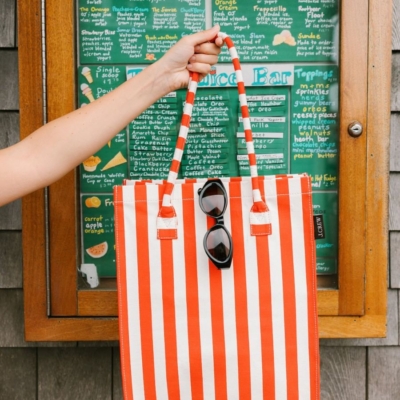From government restrictions to hygiene and safety precautions, we look at whether or not it is safe to plan a holiday abroad this summer …
As we begin to enter into Phase 3 of the government roadmap to leave lockdown, despite the acceleration of some restrictions not due until later phases, there is yet to be a date confirmed for international travel. All “non-essential travel” is to be avoided until further notice, according to the government, yet some scheduled flights continue to take off.
By July 1, Ryanair plans to return to 40% of normal flight schedules (though they specify this will be subject to government restrictions on flights being lifted, and effective public health measures being put in place at airports.) Ryanair will operate a daily flight schedule of almost 1,000 flights, restoring 90% of its pre-Covid-19 route network. Aer Lingus is taking a slightly more cautious approach and advised that it is “reviewing its future operating schedule on an ongoing basis and plans to resume flying to an increased number of destinations in July.” This comes at a time when the airline has announced it will have to cut up to 500 jobs due to the impact of Covid-19.
For many, the thought of getting onto a busy airplane with close proximity to others after months of solitude and increased hygiene habits is the last thing on their mind, but others are keen to take a break, no matter what the risks. According to a spokesperson for Ryanair, “Irish customers are booking in their thousands to summer destinations in Spain and Portugal, such as Malaga, Lanzarote, Tenerife or Faro. Since Eastern Europe started easing restrictions, we have also seen a surge in bookings to these markets, especially to Poland.” Is this increase in bookings wishful thinking or a blatant disregard for government advice?
Many are curious as to what a holiday will look like in our “new normal.” New guidelines for airports include social distancing measures that could make the already lengthy bag drop, check-in and security phases much more time consuming. Restaurants, bars and shops in duty-free are unlikely to be the leisurely experience they once were for some (we all know someone who loves to arrive two hours early for a flight to ensure ample time to browse…) Passengers will be required to wear face masks and maintain two-metre social distancing guidelines. DAA has installed a number of hand sanitising stations around both Dublin and Cork airports.
If all of this is off-putting for already nervous flyers, there is also the option of taking the ferry to France and driving across mainland Europe for a somewhat safer summer getaway. This option will help to limit your contact with other members of the public by eliminating dealings in the airport, on the plane right down to the hiring of a car. Self-catering homes are likely to be more popular this summer too, assuring families their own private place to relax without the volumes of other holidaymakers and the risk of shared spaces in hotels.
Cruises (with their largely expected downturn in sales not least due to the Princess fiasco) are offering free changes and cancellations in a bid to entice holidaymakers to book. Cruise liners including Royal Caribbean and Celebrity Cruises are allowing people to book holidays with a 48-hour cancellation policy, offering full credit for the holiday just two days before sailing.
But what about self-isolation on arrival? While Italy, Greece and France are among European countries that have lifted the requirement to self-isolate for 14 days on arrival, it is still in place in Ireland until at least mid-July with a possibility of being extended. Though just yesterday the Taskforce for Aviation Recovery called for the government to remove this requirement by July 1 in order to aid the recovery of the aviation sector.
Taoiseach Leo Varadkar has advised that he will be reviewing the guidelines on an ongoing basis, but that it is unlikely that we will reach the point of lifting the international travel ban “within weeks” and that “nobody should leave Ireland for the purpose of tourism and nobody should come to Ireland for the purpose of tourism or leisure.” There is, however, talk of “air bridges” between countries that have low transmission rates which would see holidaymakers be allowed to travel without the need for a quarantine period, meaning your one week holiday abroad might not require a total of three weeks out of action, though as of yet, this has not been confirmed with any other countries in Europe.
For many, the thought of getting onto a busy airplane with close proximity to others after months of solitude and increased hygiene habits is the last thing on their mind, but others are keen to take a break, no matter what the risks.
For those wishing to go further afield it is unlikely to be a possibility for the coming weeks and months. Mainland Europe is probably the safest bet for late summer. Those wishing to travel to the US will likely have to wait until the virus is further under control and according to leading public health official Dr Anthony Fauci, potentially even until an approved vaccine has been developed.
When you look at the wealth of holiday destinations we have within our borders, surely Irish families should be spoiled for choice. But without the guarantee of sun that comes with European holidays, many are disinclined to stay home… One friend is banking on a week away in her family bolthole outside Malaga in Spain and said she wouldn’t even mind staying in the house with trips to the supermarket for groceries instead of eating out if it meant a week of guaranteed sunshine.
When asked if Irish holidaymakers should look closer to home, Niall Rochford, General Manager of Ashford Castle and The Lodge at Ashford Castle says, “Domestic tourism is going to play a significant part in supporting the tourism industry this year as I think it will be some time before we see any discernible levels of inbound tourism again. It’s important to remember that when you holiday at home, you are not just supporting the tourism industry but also local food producers and suppliers, local economies and the many other Irish businesses, large and small, that supply to hotels all over the country.”
Supporting our local economy is of utmost importance if we are to exit the economic downturn that we’ve been faced with due to the pandemic in a timely manner. Many of Ireland’s top hotels are running special offers in a bid to attract people to stay local when they reopen. Rochford continues, “The good news is that there is great value to be had. We are receiving a huge number of enquiries and bookings from Irish holidaymakers and we’re thrilled to be able to showcase and show off a very special place on the Wild Atlantic Way. Travel restrictions and quarantine requirements are still currently in place and there is a lot of confusion around when people can travel, to where and when. Looking at Ireland for your next break brings reassurance and a real level of comfort as uncertainty around foreign travel prevails. It’s a wonderful time to explore a new county or region and get to know Ireland that little bit better.”
Indeed going forward it’s likely that the pandemic will change how and why we travel. Where once we took multiple trips per year in a race around the world, whether weekend city breaks, work trips, or extended summer holidays, we may begin again to be more considerate when planning travel and try to reduce our air miles. The impact on the environment of this enforced slow down for people and grounding of airplanes is not to be dismissed; oceans are clearer, the air is cleaner and carbon emissions are at record lows. Maybe more people will consider staycations and eco-conscious travel options going forward. Being forced to switch off from the hectic pace that had become the norm has likely encouraged people to embrace their surroundings. Hopefully we’ll all be less likely to book a long-haul trip to Bali or Beijing and instead will pack the car and head for Brittas Bay or Bantry over the coming months and years.
Whether choosing to stay local or travel further afield, the difference of opinion on taking summer holidays abroad within the public is vast. There are rumours circling in Dublin that families are grouping together to split the cost and charter planes that aren’t currently in use by airlines to take them to their holiday homes in Spain and Portugal. And a recent survey by the Tropical Medical Bureau revealed that out of the 3,683 students that took part, 96% had planned to travel in 2020 and 88% said their travel plans had been cancelled or postponed, while 56% of participants said that they will still travel before the end of 2020 if travel restrictions are eased.
One over-60 mother and grandmother told me “it wouldn’t be worth the risk” to get on an airplane this year and will opt for a week away in Ireland instead. For cocooners and the elderly, travel poses a lot more risks. Another friend told me, tongue firmly in cheek, that she would “quit her job” if her employer told her she couldn’t take the time to self-quarantine while working from home after two weeks away. But can organisations allow such lengthy time out of the office likely right when many of them will have just returned to the office? Employees are looking at four weeks out of office for a two-week holiday if the 14-day self-quarantine rule remains, though if the past months have taught us anything it’s that greater allowances could and should be made for remote working as productivity has increased for many Irish workers during lockdown.
The bottom line is that Irish people want holidays this year, and they’ll seemingly go to great lengths to get them. Here’s looking at you, Leo …
LOVETHEGLOSS.IE?
Sign up to our MAILING LIST now for a roundup of the latest fashion, beauty, interiors and entertaining news from THE GLOSS MAGAZINE’s daily dispatches.










